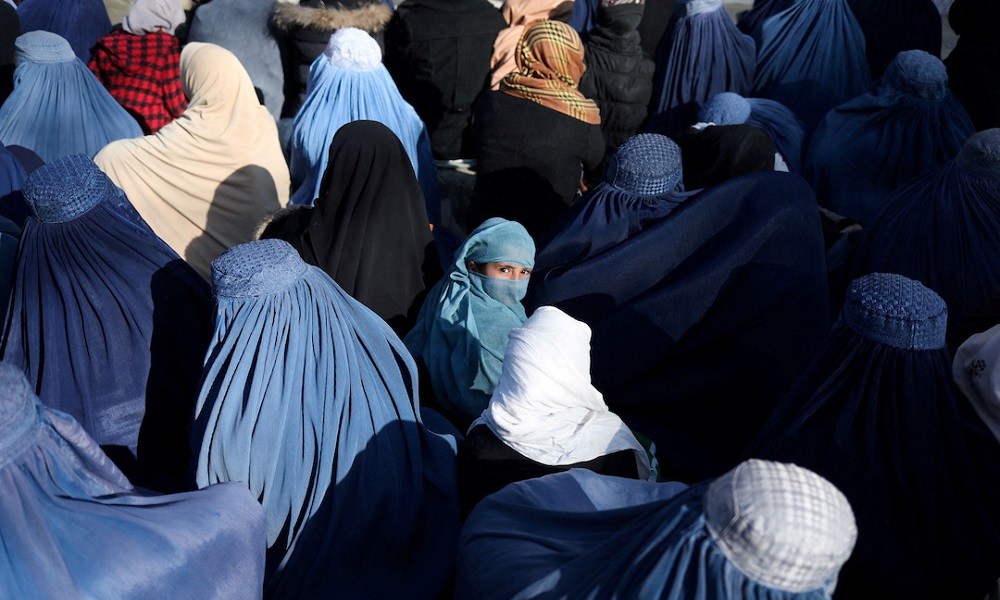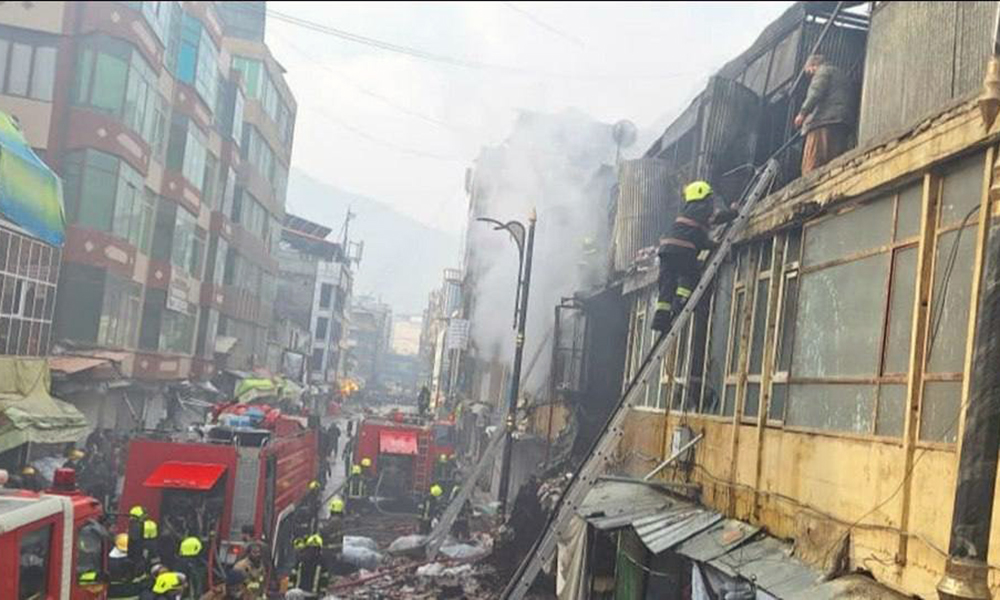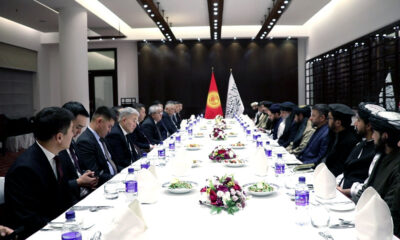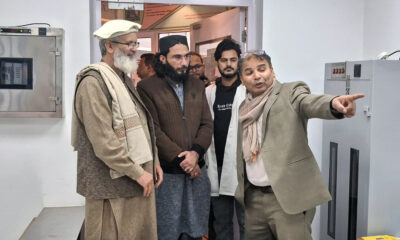Latest News
UN study warns recognizing IEA will intensify women’s rights crisis

A United Nations study revealed Friday that approximately two-thirds (67%) of women in Afghanistan fear the rights crisis would intensify if the Islamic Emirate of Afghanistan (IEA) is recognized by the international community.
“Women expressed dread and anxiety when asked to consider the possibility of international recognition of the DFA (de facto authorities),” according to the report jointly prepared by U.N. Women, the International Organization for Migration, and the U.N. Assistance Mission in Afghanistan.
“Under the current circumstances, it could exacerbate the women’s rights crisis and increase the risk that the DFA would reinforce and expand existing restrictions targeting women and girls,” the report said.
The findings are based on interviews the U.N. agencies conducted online and in-person with 745 women across the 34 Afghan provinces between January 27 and February 8.
The U.N. report said that women requested the international community not to recognize the IEA unless they reverse the restrictions.
The interviewees stated that the best way for the world to improve the rights situation in Afghanistan was to link international aid “to better conditions for women, and to facilitate opportunities for women to talk directly with the Taliban (IEA).”
Amnesty International also demanded Friday that the Doha meeting must mark an end to impunity for human rights abuse under the IEA.
The watchdog group noted in its statement that “discriminatory restrictions on the rights of women and girls, with the apparent aim of completely erasing them from public arenas” have intensified in recent months.
IEA spokesman Zabihullah Mujahid said that the United Nations is not following its principles over the issue of recognizing the Afghan government.
“The issue of recognition also has its own principles in international laws. Interviews with a few people cannot be used as a criterion for recognizing or not recognizing a government. Unfortunately, the United Nations, without considering its own principles, is dealing differently with Afghanistan in this regard, and it is putting pressure from all sides,” Mujahid said.
He added that UN is used as a tool by some powerful countries.
The UN report on women comes ahead of Sunday’s UN-convened conference in Qatar, where member states and regional organizations’ special envoys on Afghanistan will discuss the global engagement approach with the IEA.
Latest News
Afghanistan signs 30-year deal for marble mining in Daikundi

The Ministry of Mines and Petroleum of Afghanistan has signed a 30-year agreement with a private company to extract marble in Daikundi province.
Under the contract, the company will invest AFN 283 million in exploring and mining marble at the “Mesh-Uliya” site, spanning 16.74 square kilometers in central Daikundi.
Hedayatullah Badri, Minister of Mines and Petroleum, stated that the marble will be processed domestically before being exported abroad. He added that the Mesh-Uliya project is expected to create around 200 jobs, and the company is committed to supporting local communities through social initiatives.
Economic experts highlight that such investments, especially those focusing on domestic processing, are crucial for job creation, boosting exports, and strengthening the national economy. Analysts further note that the project will improve local infrastructure, expand social services, and enhance the economic and social well-being of Daikundi residents.
Since the return of the Islamic Emirate to power, efforts to develop Afghanistan’s mining sector have intensified, with multiple contracts signed in areas including cement, copper, iron, and lapis lazuli, involving both domestic and international companies.
Latest News
Passenger bus veers off Salang Highway, leaving 5 dead, dozens injured
Latest News
Major fire in Mandawi Kabul market contained, extensive losses prevented
Local shopkeepers said the fire broke out around 4 a.m.

The Ministry of Interior reported that personnel from the General Directorate of Firefighting and Emergency Response successfully prevented the further spread of a fire at Mandawi market on Kabul early Sunday morning.
Abdul Mateen Qani, spokesperson for the ministry, said that the fire destroyed 10 storage facilities and 8 shops. He added that initial losses are estimated at around $700,000, but timely action by firefighting personnel saved property worth approximately $2.2 million.
Qani explained that the fire was caused by an electrical short circuit. He praised the rapid and effective containment operations, which prevented more extensive damage.
Local shopkeepers said the fire broke out around 4 a.m.
-

 International Sports5 days ago
International Sports5 days agoIPL 2026: Teams take shape after auction as franchises balance star power and depth
-

 International Sports5 days ago
International Sports5 days agoILT20: Abu Dhabi Knight Riders end Desert Vipers’ unbeaten run in dramatic one-run win
-

 Latest News3 days ago
Latest News3 days agoAfghan border forces prevent illegal entry of hundreds into Iran
-

 Latest News2 days ago
Latest News2 days agoPakistan summons Afghan diplomat over deadly attack in North Waziristan
-

 Business5 days ago
Business5 days agoMahirood Customs leads Iran’s exports to Afghanistan
-

 Latest News5 days ago
Latest News5 days agoAfghanistan, Kyrgyzstan discuss expanding trade and economic cooperation
-

 Latest News3 days ago
Latest News3 days agoJapan allocates nearly $20 million in humanitarian aid for Afghanistan
-

 Latest News2 days ago
Latest News2 days agoKarzai urges reopening of girls’ schools and universities for Afghanistan’s bright future

























